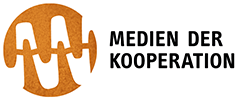Unlike books, paintings or photographic film, the surface appearance of digital media is decoupled from their technical structure (Hansen 2010). What appears on the surface is ultimately the result of an increasingly autonomous mediation between what “makes sense” to us humans and what “makes sense” to machines. To address this dialogue as a critical component of audiovisual and media ethnographic knowledge production and mediation requires a reorientation of our fieldwork modalities and knowledge formats. For these are shaped by conventions that bypass digital materiality at its core (e.g., modularity, combinatorics, or automation) and understand research tools such as digital cameras, smartphones, or software as mere assistants (e.g., Favero & Theunissen 2018). Computational correspondence (Weidle 2020) describes a research mode that overcomes these deterministic understandings and enters into an active-reflexive exchange process with digital materiality as part of ethnographic research practice. The emergent properties of this interplay sharpen the view of method and process as independent and mobile, non-linear forms and formats of knowledge.
The master class is about a critical reflection of lived practice with digital materiality. The research mode will be clarified with the help of the interactive authoring tool “Korsakow”. To this end, we will engage in a dialogue with Korsakow through practical exercises to explore possible new approaches within our own research and discuss them in the group. There will also be the question of how research can be visualized and whether making the exchange process visible can be used with the software to communicate scientific results. In addition to Korsakow, there should be room for exploration with other digital-based tools, infrastructures, and materials. Video material from your own research work is welcome to be brought along.
Schedule
|
22.4., 10 am – 6 pm Online |
Introduction to Computational Correspondence and Korsakow from 3 pm: independent work with supervision
|
|
|
23. – 27.4. |
Self-directed field exercises Questions and other materials will be provided
|
|
|
28.4., 10 am – 6 pm in Siegen 29.4., 9 am – 1 pm in Siegen |
Discussion of the exercises and joint further work/differentiation of the concept |
|
Participation informationen
Target group: the master class is aimed at digital media researchers interested in visual ethnographic methods
Schedule and work plan: The master class consists of a one-day online event (22.4.), in which the approach of “Computational Correspondence” will be introduced and discussed on the basis of practical examples, as well as first own walking attempts with the Korsakow software can be undertaken. This will be followed by a self-directed trial phase in order to carry out field exercises on one’s own material. These will then be presented and discussed in a 1.5-day workshop in presence (28.-29.4.).
Requirements: Basic knowledge of ethnographic research methods, knowledge of video recording and video editing is an advantage.
Seminar language: German / English
Maximum number of participants: 20
Conditions of participation: We assume that all participants agree to use the Zoom video conferencing system in connection with the workshop and to treat the data provided for the work responsibly and confidentially. Participants are willing to install a trial version of the Korsakow software and, if necessary, share their screen to discuss created projects in plenary. Those who would like to work with video material may need a camera (smartphone is also sufficient) as well as video editing software.
Recommended reading for the master class:
Weidle, Franziska 2021. “Vom Umgang mit Code: Computational Correspondence as an Approach to a New Audiovisual Ethnography,” Cuckoo 1(21): 46-49.
Registration and a short letter of motivation (150-200 words) are requested by 14.4. to Franziska Weidle: weidle.franziska@gmail.com
The master class is organized by Jutta Wiesemann and Martin Zillinger and will be led by Franziska Weidle and Judith Schein.
Franziska Weidle (PhD) is a visual anthropologist, film and media maker, and educational consultant. She currently works as a research assistant at the Brandenburg University of Technology Cottbus-Senftenberg. Her doctoral research focused on the influence of media software on the theory and practice of documentary and ethnographic filmmaking. In this context, she investigated the Korsakov software and its role within various documentary practices.
Judith Schein (M.A.) is a freelance filmmaker. She studied cultural anthropology with a focus on visual anthropology at the Georg-August-University of Göttingen. Her audiovisual projects include the nonlinear documentaries “Zeitzeugengespräche – Migrant*innen & die friedliche Revolution” (2020) and “Islam sinnlich erfahren” (2020) as well as the documentary feature-length film “Was bleibt – ein Nachruf auf Wilhelmine und Bernard” (2017), for which she received the Manfred Krüger Award in 2018.
Literature
Hansen, Mark B.N. 2010. New Media, in W. J. T. Mitchell and Mark B. N. Hansen (eds.), Critical Terms for Media Studies, 172–85. Chicago, IL: Chicago University Press.
Favero, Paolo und Eva Theunissen 2018. ‚With the smartphone as field assistant: Designing, making, and testing EthnoAlly, a multimodal tool for conducting serendipitous ethnography in a multisensory world‘, American Anthropologist 120(1): 163-167. https://doi.org/10.1111/aman.12999
Weidle, Franziska. 2020. Of Trees and Clouds. Software-mediated Visions in Documentary and Ethnographic Filmmaking Practices. Göttingen: V&R unipress.
Venue
AH-A 217/218


